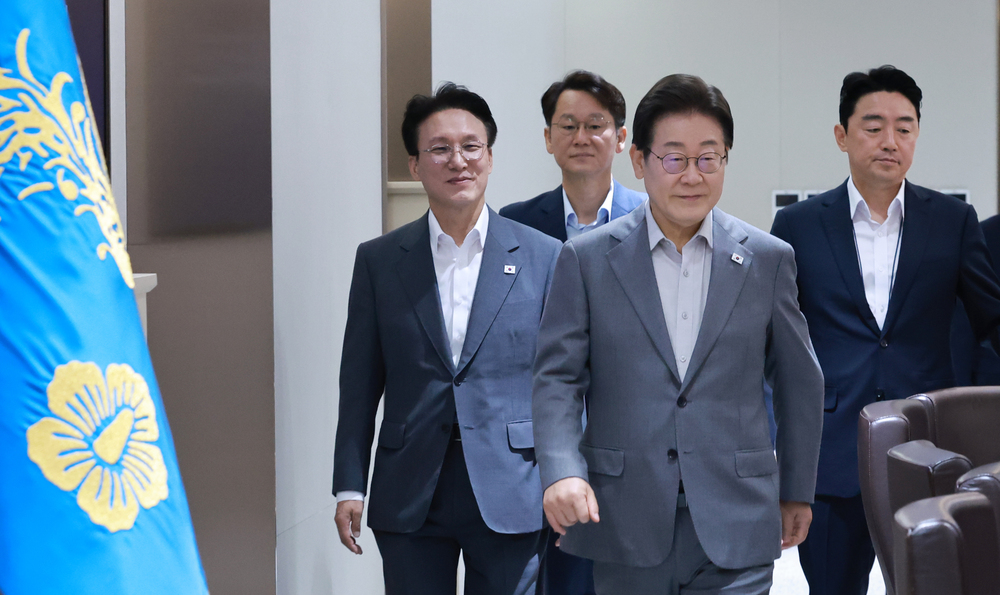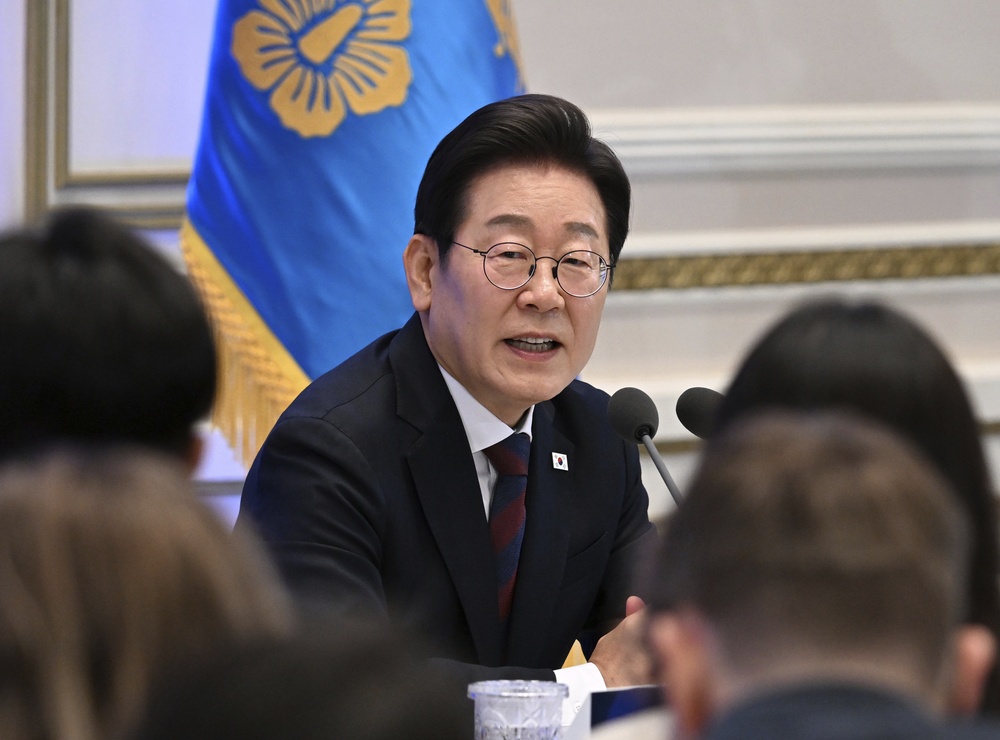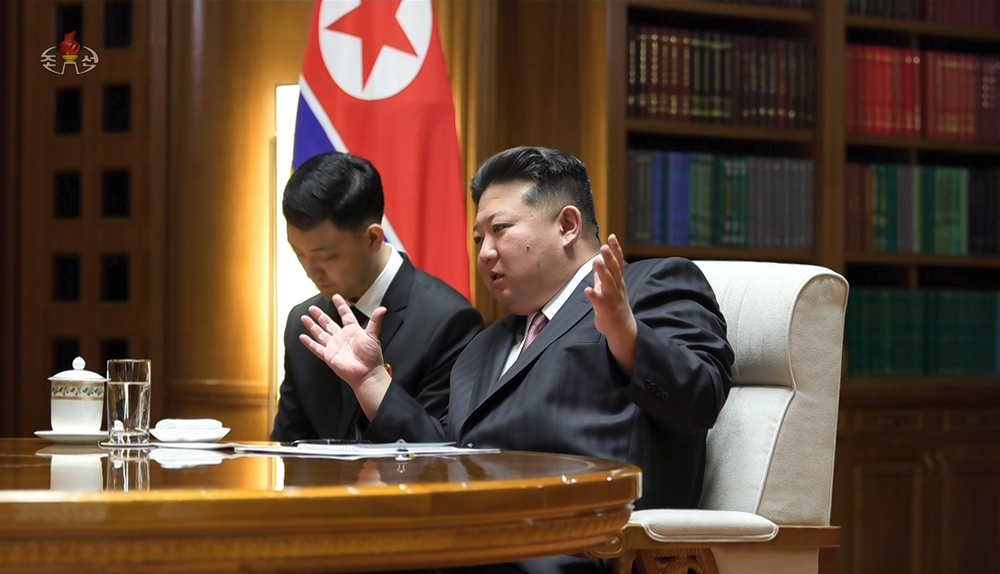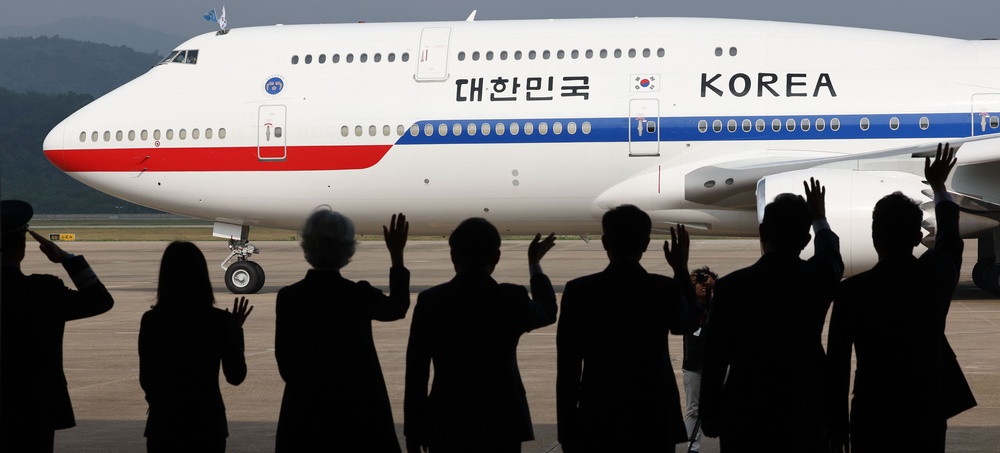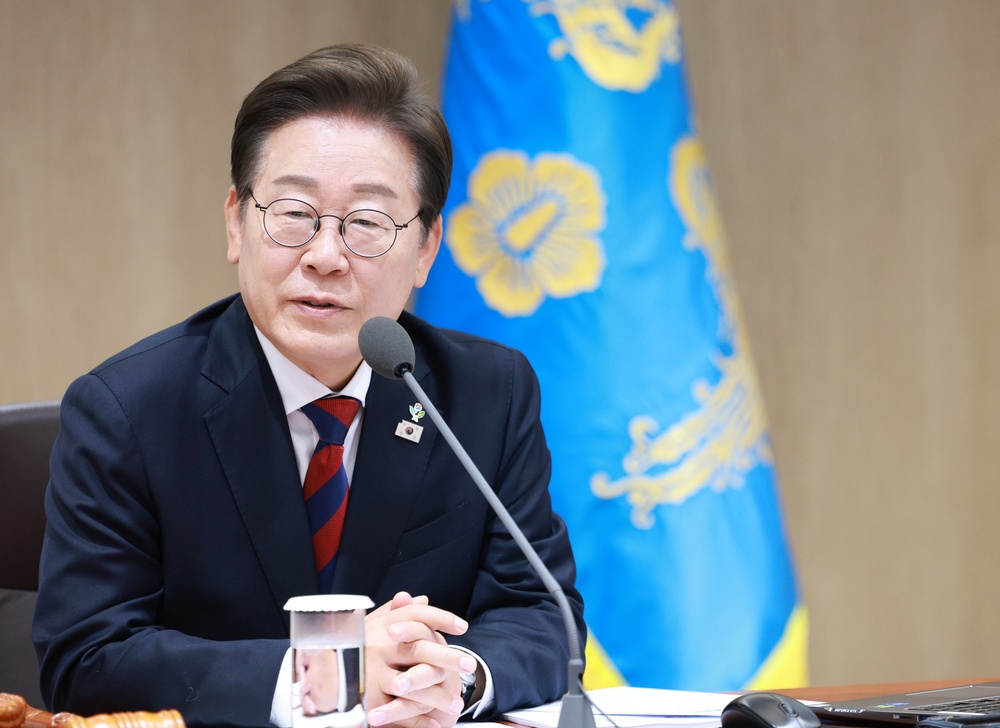
- #South Korea
- #US Foreign Policy
- #US-ROK Alliance
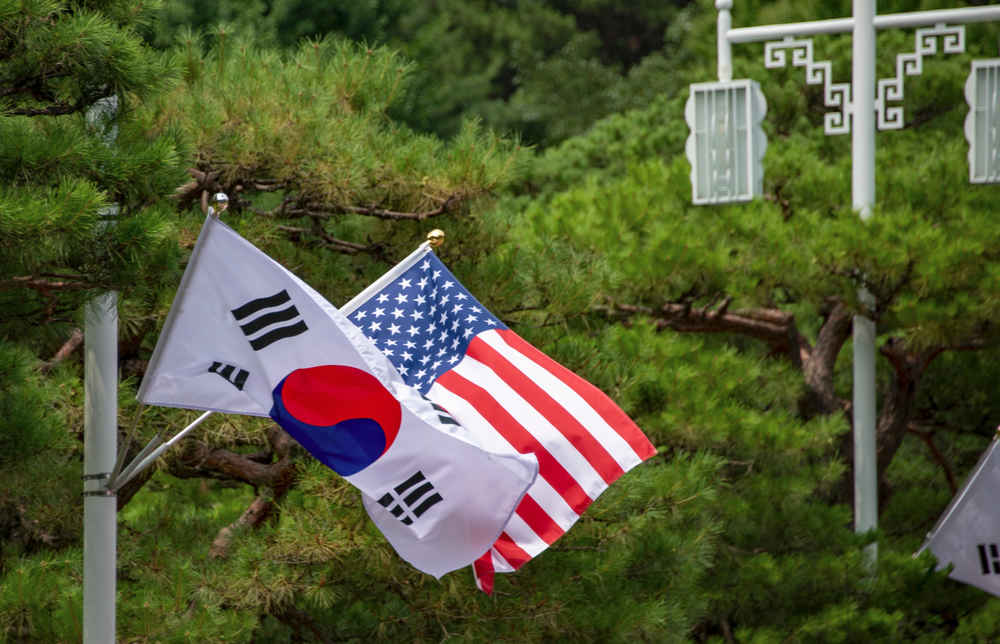
- The U.S.-South Korea alliance, strong a year ago, now faces significant uncertainty due to new leadership in both countries, with Presidents Trump and Lee Jae-myung questioning the alignment of their nations' interests, particularly regarding China.
- This shift risks a downgrade of South Korea's standing as a top-tier U.S. ally in Asia, potential unilateral U.S. troop withdrawals that could fuel South Korean abandonment fears, and uncoordinated reassessments of North Korea and China strategies by both nations.
- To prevent decoupling, both sides must engage in genuine consultation before undertaking unilateral actions, encouraging South Korea's continued role in regional and global cooperation, and holding an early strategic dialogue to bridge policy differences on China and North Korea.
A year ago,
the United States-South Korea alliance reached its apex. Presidents Joe Biden
and Yoon Suk-yeol had taken historic steps to tighten the bilateral alliance while
expanding cooperation on global issues. Trilateral cooperation with Japan had
resumed, and Seoul was increasingly seen as a critical player off the Korean
Peninsula as Yoon sought opportunities to step up on the international stage. Speaking
to the U.S. Congress, Yoon labeled the alliance “stronger than ever,”
a message that was repeated by Washington.
But late-2024
brought major changes—and uncertainty—to the U.S.-ROK alliance. Biden’s election
loss and Yoon’s martial law declaration ushered in new leaders in Washington
and Seoul. These new leaders have come along with new strategies, as Presidents
Donald Trump and Lee Jae-myung have very different approaches than their
predecessors. On occasion, both leaders have even questioned fundamental aspects
of the alliance. As a result, the United States and South Korea could be in for
one of the most difficult alliance relationships in years.
Although
Trump and Lee are very different leaders, they share a common concern that
American and South Korean interests are not as aligned as their predecessors assumed.
Many in the Trump administration question whether South Korea is willing to
cooperate with the United States to balance against China, which they see as Washington’s
top global challenge. Meanwhile, many in the Lee administration are asking whether
South Korea should seek more balance in relations with the United States and China.
There is a real risk that these mutual concerns will feed on each other,
increasing concerns about alliance decoupling in both Washington and Seoul.
A decoupling
in the U.S.-South Korea alliance is problematic for multiple reasons, but three
concerns stand out. First, the United States might downgrade South Korea’s
position in the pantheon of U.S. regional alliances. South Korea has generally been
viewed by most in Washington as a top tier ally in Asia, alongside Japan and
Australia. However, the Philippines is increasingly taking its place, as U.S.
focus shifts from North Korea to China. In just the first few months of the
Trump administration, this shift has been quite evident.
Upon
taking office, senior leaders in the Trump administration began to emphasize
the importance of Japan, Australia, and the Philippines as key allies in the
Indo-Pacific. Secretary of Defense Pete Hegseth recently called them the “core”
group of regional allies. Secretary of State Marco Rubio met in person with
foreign ministers from each of the three in his first day in office, but not
South Korea. To date, no senior Trump administration official has traveled to
South Korea. Even arranging an introductory phone call between Trump and Lee
proved more challenging than expected.
Of course,
the Trump administration’s initial interactions with South Korea were
complicated by the political upheaval occurring in Seoul at the time. But this
reality obscures the fact that some in the Trump administration are asking
fundamental questions about how deeply U.S. interests are aligned with those of
Seoul. The Trump administration has several experts on the Korean Peninsula in
key positions at the State Department. Nonetheless, Defense Department
officials appear more skeptical, and the White House has lost critical experts
and interlocutors.
This leads
to a second concern, which is that the Trump administration might take actions
that feed abandonment fears in Seoul. Most notable would be unilateral U.S.
military force posture changes in South Korea. Reports have circulated for
months that the United States is considering withdrawing a Stryker brigade from
the Peninsula, which would amount to a decrease of roughly 4,500 troops (approximately
15% of those currently deployed). Although some in the Trump administration
have denied these reports, they align with comments made previously by various
officials before they entered government.
Supporters
of this troop withdrawal point out that a Stryker brigade is not particularly relevant
to a U.S.-China contingency. Nevertheless, the unilateral nature of the U.S. approach
— in which Korean officials appear more likely to be informed, rather than
genuinely consulted — risks undermining the alliance. If South Korea fears
about U.S. abandonment grow, this could decrease domestic support for the
alliance in both capitals. The results could be disastrous and further
complicate alliance dynamics – accelerating discussion of nuclear options in
Seoul, for example.
Finally,
there are concerns that the United States and South Korea are each reassessing their
North Korea and China strategies, yet are doing so without proper alliance
coordination. Some officials in the Trump administration are determined to shift
America’s focus to address the China challenge, viewing North Korea as a
distraction. It should come as no surprise then, that Washington has quietly
adjusted its own messaging by periodically dropping language about the
“complete denuclearization” of North Korea from public statements. Ah the same
time, Trump appears inclined to again engage directly with Xi Jinping and Kim
Jong Un.
Meanwhile
in Seoul, Lee has asserted that he will be more pragmatic in dealings with
Pyongyang and Beijing. This would mark a return to Sunshine Policy, a strategy
pursued previous liberal Presidents, including Moon Jae-in. However, as was the
case then, there is limited engagement between Washington and Seoul to
synchronize these approaches. The risk is that actions by one side will feed
worries in the other, accelerating concerns about alliance decoupling.
How might
the Trump and Lee administration’s work together to manage the growing risk of
alliance decoupling? Three elements are critical.
First, Washington
and Seoul should genuinely consult each other before taking any unilateral
actions, whether they be force deployments or third-party engagements. Given
concerns in both capitals about how the other ally will deal with China and
North Korea, direct and frequent discussions will be vital to avoiding any miscommunications.
In moments such as these, when concerns are spreading that American and South
Korean interests might not be well aligned, it is even more important that the
two governments coordinate proactively. To that end, the two governments should
hold senior-level discussions on force posture in the coming weeks, so they can
get on the same page about U.S. troop deployments.
Second,
Seoul should continue to play a substantial role off the Peninsula, and
Washington should encourage these efforts. Concerns about misaligned interests
on the Peninsula should incentivize expanded cooperation in other areas where
the administrations’ interests coincide. What might this look like in practice?
U.S. officials should welcome South Korea to play a constructive role in regional
and global minilateral groups. Seoul may not be a member of the Quad or G7, but
it has an important role to play in supporting their efforts. Sidelining Seoul would
not only isolate South Korea, it would also weaken U.S. leverage with key
competitors such as China, North Korea, and Russia.
Third and
finally, the allies should hold an early strategic dialogue to bridge their
shared concerns about disconnects on China and North Korea policies. Simply
waiting until problems arise on these issues is unwise when officials in both
countries are growing more worried. Rather, Washington and Seoul should aim to
hold an early Security Consultative Meeting. When they do so, they should aim
to announce cooperation on issues such as shipbuilding and technology, in order
to demonstrate the depth of shared interests between the two allies.
George Schultz
often compared alliance management to gardening. For several months, Washington
and Seoul have allowed weeds to grow in their share garden as they got their
houses in order. Now is the time for the two sides to get back to work, lest little
problems grow into big obstacles.

Zack Cooper is a senior fellow at the American Enterprise Institute, where he focuses on US strategy in Asia, including alliance dynamics and US-China competition. He also teaches at Princeton University, chairs the board of the Open Technology Fund, and is writing a book on how militaries change during power shifts. Prior to AEI, Dr. Cooper held positions at the Center for Strategic and International Studies (CSIS), the German Marshall Fund, and the Center for Strategic and Budgetary Assessments, and served at the National Security Council and the Department of Defense. He has extensively published on US strategy and alliances in Asia, including in academic journals and prominent media outlets like Foreign Affairs and the New York Times. He holds a PhD, MA, and MPA from Princeton University, and a BA from Stanford University.
